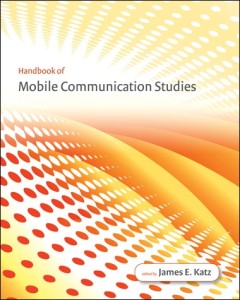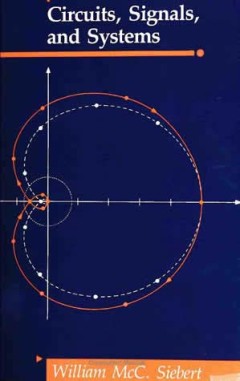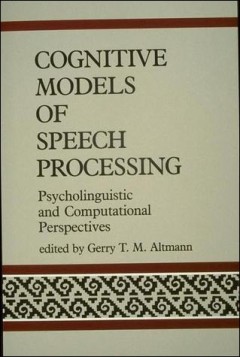Filter by

Systematics as cyberscience : Computers, Change, and Continuity in Science
For all the use scientists make of computers in their work, we still know little about how computing affects their working methods and the knowledge they produce. Christine Hine explores these questions by examining the developing use of information technology in one discipline, systematics (the classification of organisims).
- Edition
- -
- ISBN/ISSN
- -
- Collation
- 1 online resource (x, 307 pages) :
- Series Title
- -
- Call Number
- -

Digital Apollo Digital Apollo: Human and Machine in Spaceflight
How human pilots and automated systems worked together to achieve the ultimate in flight--the lunar landings of NASA's Apollo program.As Apollo 11's Lunar Module descended toward the moon under automatic control, a program alarm in the guidance computer's software nearly caused a mission abort. Neil Armstrong responded by switching off the automatic mode and taking direct control. He stopped mo…
- Edition
- -
- ISBN/ISSN
- -
- Collation
- 1 online resource (xiii, 359 pages) : illustrations
- Series Title
- -
- Call Number
- -

Handbook of mobile communication studies / of Mobile Communication Studies
This volume offers a view of the cultural, interpersonal and family consequences of mobile communication across the globe. The contributors analyse the effects of moble communications on all aspects of life, from the relationship between literacy and the textual features of phones, to the use of ringtones as a form of social exchange.
- Edition
- -
- ISBN/ISSN
- -
- Collation
- 1 online resource (ix, 472 pages) : illustrations, map
- Series Title
- -
- Call Number
- -

Thoughtful Interaction Design: A Design Perspective on Information Technology
How to think about the shaping and composing of information technology from a design perspective: the aesthetics and ethics of interaction design.OCLC-licensed vendor bibliographic record.
- Edition
- -
- ISBN/ISSN
- 9780262256575
- Collation
- 1 online resource (xiii, 198 pages) :illustrations
- Series Title
- -
- Call Number
- -

Circuits, Signals, and Systems
Includes index.These twenty lectures have been developed and refined by Professor Siebert during the more than two decades he has been teaching introductory Signals and Systems courses at MIT. The lectures are designed to pursue a variety of goals in parallel: to familiarize students with the properties of a fundamental set of analytical tools; to show how these tools can be applied to help und…
- Edition
- -
- ISBN/ISSN
- 9780262290968
- Collation
- 1 online resource (xvi, 651 pages) :illustrations.
- Series Title
- -
- Call Number
- -

Cognitive Models of Speech Processing: Psycholinguistic and Computational Per…
Cognitive Models of Speech Processing presents extensive reviews of current thinking on psycholinguistic and computational topics in speech recognition and natural-language processing, along with a substantial body of new experimental data and computational simulations. Topics range from lexical access and the recognition of words in continuous speech to syntactic processing and the relationshi…
- Edition
- -
- ISBN/ISSN
- 9780262267076
- Collation
- 1 online resource (x, 540 pages) :illustrations.
- Series Title
- -
- Call Number
- -

Object recognition in man, monkey, and machine
The contributors bring a wide range of methodologies to bear on the common problem of image-based object recognition. These interconnected essays on three-dimensional visual object recognition present cutting-edge research by some of the most creative neuroscientific, cognitive, and computational scientists in the field. Cassandra Moore and Patrick Cavanagh take a classic demonstration, t…
- Edition
- -
- ISBN/ISSN
- 9780262287609
- Collation
- 1 online resource (217 pages) :illustrations.
- Series Title
- -
- Call Number
- -

A robot ping-pong player :experiment in real-time intelligent control
This tour de force in experimental robotics paves the way toward understanding dynamic environments in vision and robotics. It describes the first robot able to play, and even beat, human ping-pong players.Constructing a machine to play ping-pong was proposed years ago as a particularly difficult problem requiring fast, accurate sensing and actuation, and the intelligence to play the game. The …
- Edition
- -
- ISBN/ISSN
- 9780262255615
- Collation
- 1 online resource (xiii, 275 pages) :illustrations.
- Series Title
- -
- Call Number
- -

System Modeling in Cellular Biology: From Concepts to Nuts and Bolts
A Bradford book."This is an introduction and overview of system modelling in biology that is accessible to researchers from different fields including biology, computer science, mathematics, statistics physics, and biochemistry.OCLC-licensed vendor bibliographic record.
- Edition
- -
- ISBN/ISSN
- 9780262257060
- Collation
- 1 online resource (xiv, 448 pages) :illustrations
- Series Title
- -
- Call Number
- -

Systems, Experts, and Computers: The Systems Approach in Management and Engin…
This study charts the origins and spread of the systems movement. It describes the major players - including RAND, MITRE, Ramo-Wooldrige (later TRW), and the International Institute of Applied Systems Analysis - and examines applications in a wide variety of military, government, civil, and engineering settings. The book is international in scope, describing the spread of systems thinking in Fr…
- Edition
- -
- ISBN/ISSN
- 9780262275873
- Collation
- 1 online resource (vi, 513 pages) :illustrations.
- Series Title
- -
- Call Number
- -
 Computer Science, Information & General Works
Computer Science, Information & General Works  Philosophy & Psychology
Philosophy & Psychology  Religion
Religion  Social Sciences
Social Sciences  Language
Language  Pure Science
Pure Science  Applied Sciences
Applied Sciences  Art & Recreation
Art & Recreation  Literature
Literature  History & Geography
History & Geography